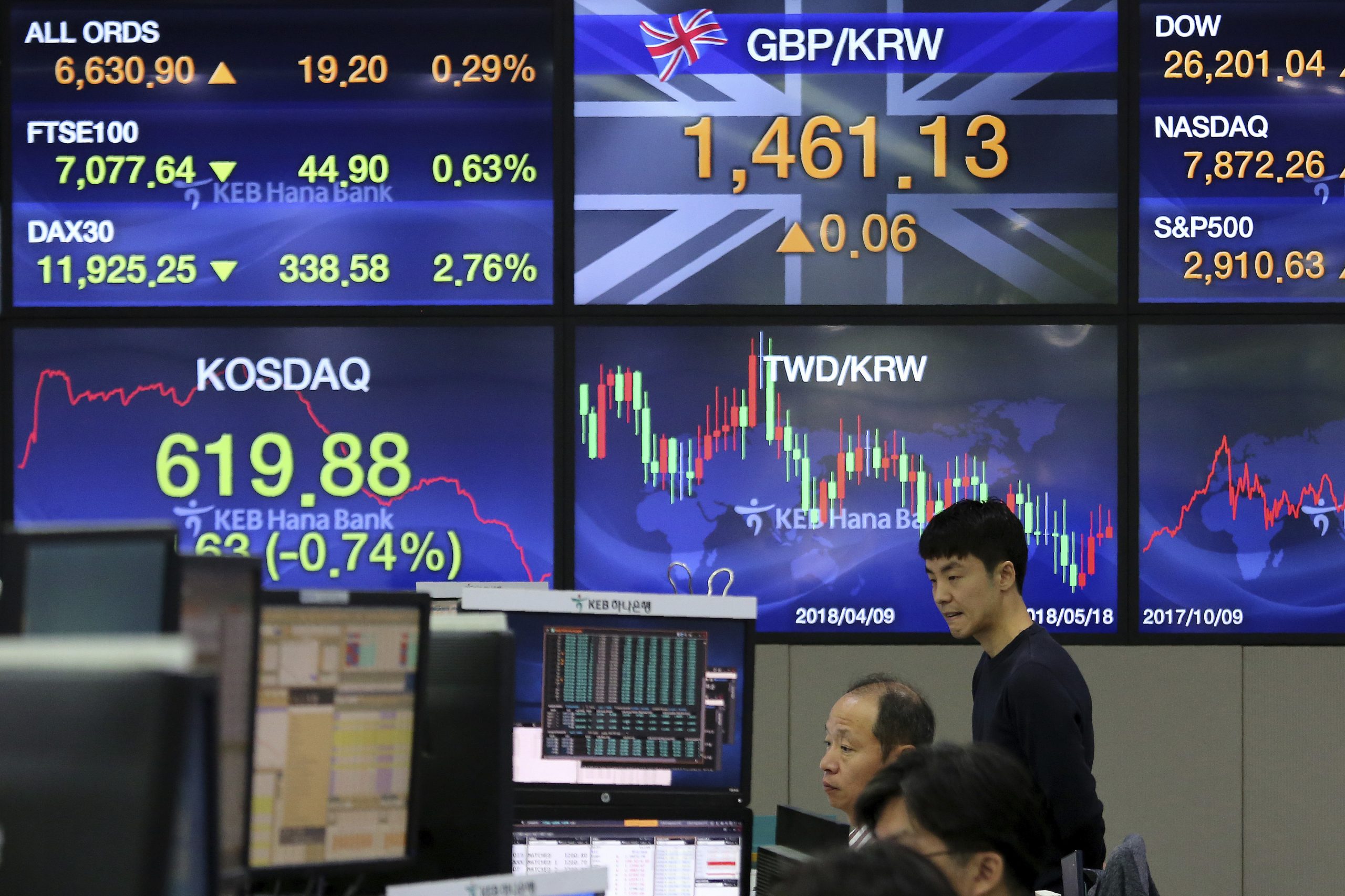Asia markets were mixed in Tuesday afternoon trade following another record session on Wall Street.
Mainland Chinese stocks were higher by Tuesday afternoon, following their Monday fall. The Shanghai composite added 0.25% while the Shenzhen component gained 0.68%. The Shenzhen composite also rose 0.7%.
Hong Kong’s Hang Seng index declined 0.15% to close early at 27,864.10 ahead of the Christmas Day holiday on Wednesday.
The Nikkei 225 in Japan was fractionally lower in afternoon trade, while the Topix index inched down 0.14%. In South Korea, the Kospi slipped 0.52%.
Meanwhile, shares in Australia had an early close for Christmas Eve, with the S&P/ASX 200 up 0.13% to 6,794.20.
Overall, the MSCI Asia ex-Japan index traded 0.07% lower.
Shares of Apple suppliers regionally were mixed on Tuesday afternoon. Taiyo Yuden was up 2.36% in Japan while South Korea’s LG Display slipped 2.19%. In Hong Kong, Sunny Optical declined 0.36% while Taiwan’s Taiwan Semiconductor Manufacturing Company dipped 0.45%.
The moves came following the Cupertino-based tech giant’s 1.6% stock jump on Monday stateside after Wedbush Securities’ Dan Ives — Apple’s biggest bull on Wall Street — raised his price target to $350 a share, 25% higher than where the stock currently trades.
Overnight stateside, stocks extended their year-end rally as the three major averages all posted record closes. The Dow Jones Industrial Average added 96.44 points to close at 28,551.53 while the S&P 500 rose 0.1% to end its trading day at 3,224.01. The Nasdaq Composite advanced 0.2% to close at 8,945.65.
News that China will cut import tariffs on a wide range of goods boosted sentiment. China’s finance ministry announced starting January 1, it will lower import tariffs on over 850 products ranging from frozen pork to some types of semiconductors. However, mainland Chinese stocks tumbled on Monday following that announcement.
“The move is not linked to US-China trade tensions, instead it is seen as a combination of a need from China to lower costs on import necessities such as pork and medicine, while also aimed at showing a willingness to open its economy to the rest of the world,” Rodrigo Catril, senior foreign exchange strategist at National Australia Bank, wrote in a note.
Currencies and oil
The U.S. dollar index, which tracks the greenback against a basket of its peers, was last at 97.678 after touching highs around 97.8 yesterday.
The Japanese yen traded at 109.38 per dollar after strengthening from levels around 109.5 in the previous session. The Australian dollar changed hands at $0.6916 after rising from levels around $0.69 yesterday.
Oil prices were little changed in the afternoon of Asian trading hours, with international benchmark Brent crude futures at $66.37 per barrel. U.S. crude futures dipped fractionally to $60.49 per barrel.

